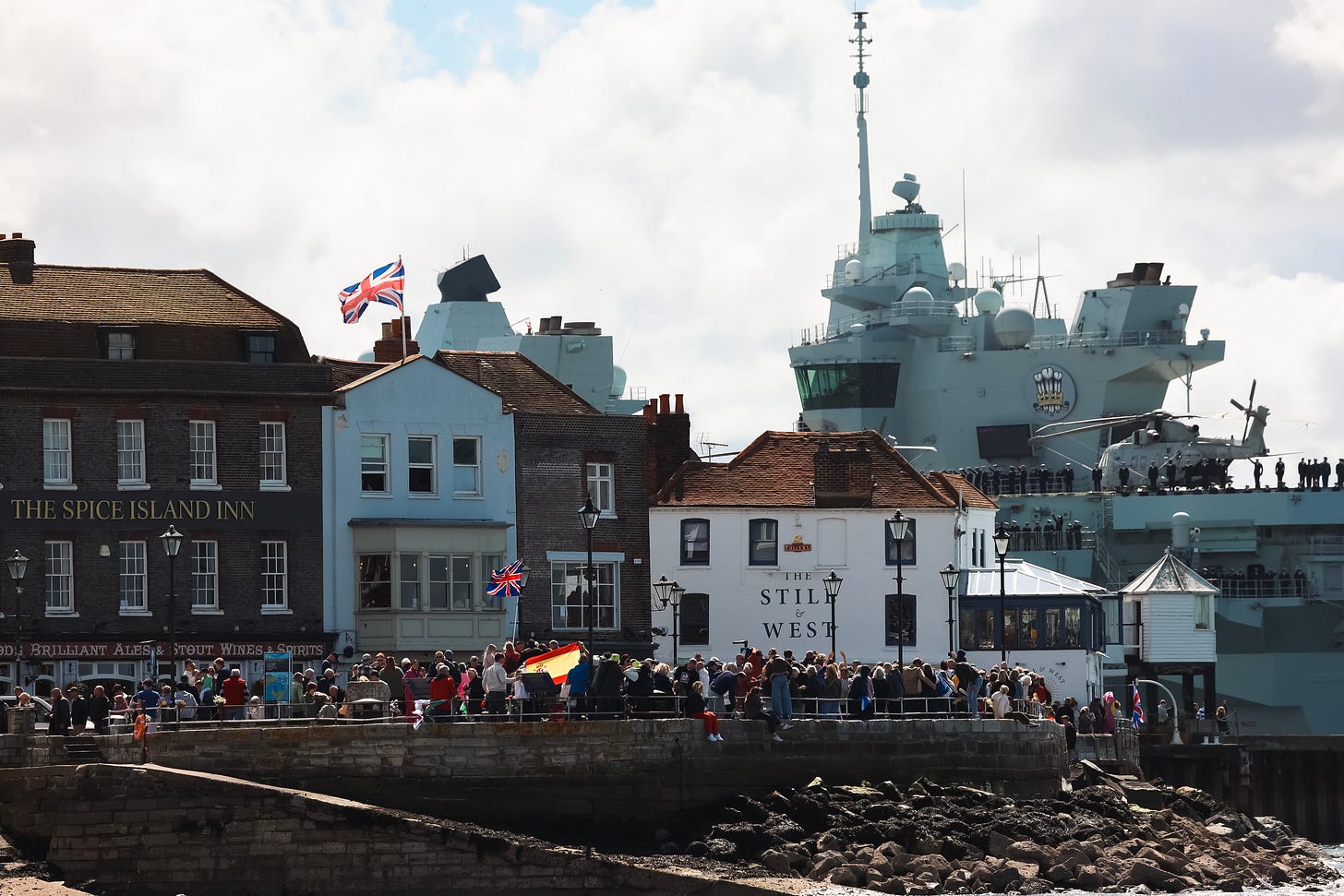Why UK needs a Ministry of Economic Warfare
We're the victims of economic aggression and need the tools to respond
This week, together with James Rogers, I published a short paper for the Council on Geostrategy arguing that the UK needs to set up a Shadow Ministry of Economic Warfare – as it did in the 1930s.
In this edition of Confict & Democracy I will expand on the rationale and discuss some of the tools such a ministry might use in the short term, to defend the UK from economic aggression from its enemies, and the bigger tools it needs to hone to deter those enemies from escalating against us. As always this is written for a non-professional audience, so I will explain key terms.
First, let’s define what we are talking about. Sir Ronald Cross, the UK’s first Minister for Economic Warfare, defined it fairly well in January 1940:
“To my mind, economic warfare aims at attacking the industrial, financial, and economic structure of the enemy, and thus so to cripple and enfeeble his armed forces that they can no longer effectively carry on war.”
However, we are not at war. But something more insidious is being practised against us: Russia is manipulating the price of energy and wheat, it is using cyber-attacks against key infrastructure, and it has attempted to damage undersea cables and pipelines on which our national security depends.
We, in turn, have taken part in massive sanctions against Russia, while freezing $300bn of its forex reserves and using the interest on that money to arm Ukraine.
For this reason I think we need three categories of economic statecraft: competition, coercion and warfare – with warfare not confined to action during a kinetic conflict, but in support of allies such as Ukraine, and available defensively when under economic attack.
When states compete economically they do so to enhance their populations’ wealth, security, their fiscal and monetary stability and to maintain technological leadership. That’s the “game” in the ordinary world, where there is a rules based global order.
For me, the zone of coercion comes when states break the rules of the international order. You are trying to constrain their action, or signal more serious responses, and generally change their behaviour – forcing them to go back to the rules based game. That’s what I think the UK was doing in February 2022 when it imposed massive sanctions on Russia. But what is the function of those sanctions today? I would argue its aim is to help Ukraine defeat Russia.
Economic warfare is not about persuading or changing behaviour: it is about removing the enemy’s will and means to fight. It is not iterative, where you go in with small sanctions to signal bigger ones if the misbehaviour continues: it is an attempt to smash the enemy into submission – as Britain did with its blockade of Germany in 1914-18.
The problem facing the UK is that, with Russia and its allies, we are doing a mixture of coercion and economic warfare, with no clear and centralised methodology in government, and no single guiding institution.
Lessons of the 1930s
The lessons of the First World War convinced UK planners that, from the early 1920s onwards, you would need a ministry to do the specifics of blockade, financial pressure, economic intelligence and the legal seizure of contraband (ie enemy goods traded with neutrals). They set up an Advisory Committee on economic warfare in 1924, which considered various scenarios.
Keep reading with a 7-day free trial
Subscribe to Conflict & Democracy to keep reading this post and get 7 days of free access to the full post archives.




